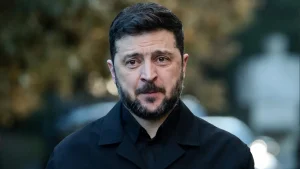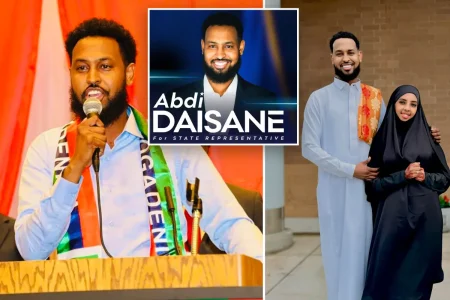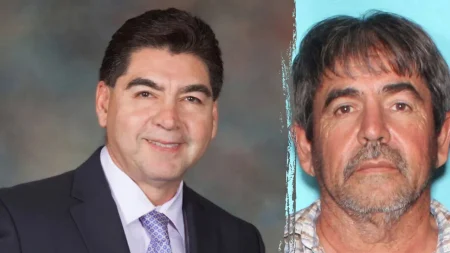Marco Rubio’s journey through the political landscape reveals a fascinating evolution in his foreign policy perspectives, transitioning from a hawkish optimist embracing international engagement to a more cautious, even pessimistic, stance characterized by a focus on domestic priorities and skepticism towards globalization. This transformation, driven by a confluence of factors including shifting geopolitical realities, evolving political calculations, and perhaps even personal reflections, has reshaped his vision for America’s role in the world and raises significant questions about the direction he might take if entrusted with the responsibilities of Secretary of State.
In his early years on the national stage, Rubio projected an image of energetic optimism, advocating for an assertive American foreign policy rooted in the promotion of democracy and free markets. He championed robust international engagement, viewing America’s global leadership as indispensable for maintaining stability and advancing American interests. This “hawkish optimism” manifested in his support for interventions in Libya and Syria, his tough stance on China and Russia, and his vocal advocacy for expanding American influence in Latin America. He viewed the United States as an exceptional nation with a moral obligation to champion liberty and democracy abroad, reflecting a neo-conservative worldview that emphasized American exceptionalism and the transformative power of American ideals. This period saw Rubio frequently invoking Ronald Reagan’s legacy, positioning himself as a heir to the tradition of assertive American leadership on the world stage. He envisioned a world order shaped by American power and principles, a vision that resonated with many within the Republican Party and contributed to his rise as a prominent voice in foreign policy debates.
However, the complexities of global politics, coupled with the changing domestic political landscape, gradually began to reshape Rubio’s outlook. The perceived failures of interventionism in the Middle East, the rise of populist sentiment within the Republican Party, and the growing economic anxieties of American workers all contributed to a shift in his perspective. He began to express increasing skepticism about the benefits of globalization and free trade, arguing that these forces had disproportionately harmed American workers and undermined American manufacturing. This shift also coincided with the rise of Donald Trump, whose “America First” rhetoric resonated with a significant segment of the electorate and challenged the traditional Republican consensus on foreign policy. Rubio, while maintaining his critique of authoritarian regimes like China and Russia, began to emphasize the importance of prioritizing domestic needs and rebuilding American strength at home.
This evolving perspective culminated in a more inward-looking, antiglobalist stance that prioritized domestic economic revitalization and a more selective approach to international engagement. He began to question the efficacy of costly foreign interventions and advocate for a more restrained approach to using American military power. This shift reflected a growing sense of pessimism about the ability of the United States to shape global events and a recognition of the limitations of American power. He increasingly emphasized the need to focus on strengthening the American economy, investing in infrastructure, and addressing the challenges facing American workers, arguing that a strong domestic foundation was essential for projecting American power and influence abroad. This represented a marked departure from his earlier hawkish optimism, reflecting a growing awareness of the trade-offs inherent in foreign policy decision-making and a greater emphasis on the domestic dimensions of national security.
The potential implications of Rubio’s evolved foreign policy perspective for his role as Secretary of State are significant. While his commitment to confronting authoritarian regimes like China and Russia remains steadfast, his emphasis on domestic revitalization and skepticism towards globalization could lead to a more cautious and selective approach to international engagement. He might prioritize bilateral relationships over multilateral institutions, and focus on economic diplomacy aimed at protecting American businesses and workers. His skepticism towards free trade agreements could lead to a more protectionist trade policy, potentially straining relationships with key allies. Furthermore, his more restrained approach to using military power could signal a shift away from interventionism and a greater emphasis on diplomacy and economic statecraft.
Ultimately, Rubio’s transformation underscores the dynamic nature of foreign policy thinking and the influence of both external events and internal political calculations on the evolution of a politician’s worldview. His journey from hawkish optimist to a more inward-looking, antiglobalist pessimist offers a valuable case study in the complexities of navigating the global landscape and the challenges of balancing competing priorities in an increasingly interconnected world. If selected as Secretary of State, his decisions would be closely scrutinized, reflecting the significant implications of his evolved perspective for the future direction of American foreign policy. His approach to navigating the complexities of great power competition, managing alliances, and addressing global challenges like climate change and pandemics would ultimately shape America’s role in the world and determine whether his vision of a more restrained, domestically focused foreign policy can effectively advance American interests and values in a turbulent and uncertain global environment.










